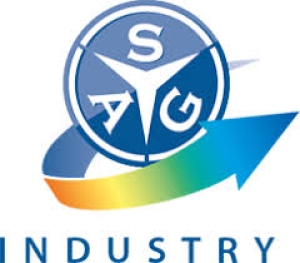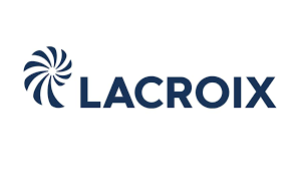
Our Sectors
For 20 years, LD Export has specialized in business development for European and UK companies. We assist our clients in expanding across the six Gulf countries—Saudi Arabia, Qatar, United Arab Emirates, Bahrain, Oman, and Kuwait—regardless of their industry.
With our extensive database of 4,500 reliable local distributors—personally met and vetted by our team—we ensure our clients are strategically positioned for successful commercial development. Additionally, our proven track record of hundreds of successful missions and our strong local presence make us the trusted partner for many European and British institutions in the region.


































































































Our Team







Jelena Llamas
Area Manager - France


Adam Czarny
Marketing & Design Specialist

Puja Ramuka
Market Studies Specialist

Nila Febriyanti
Market Studies Specialist

Robin Riviere
Business Consultant

Gabriel de Magneval
Business Consultant

Romain Girault
Business Consultant

Zofya Pidhorna
Business Developer

Ethan Trinh
Business Developer


Dasha Zhivanyuk
Sales Manager



































































































Success Stories

Objective Establish a long-term presence in Qatar after years of limited progress Action New approach with identification of a suitable distributor and on-site support Result Representation agreement signed and first projects underway Testimonial After we as LaborexRail had decided one year ago to actively develop the Qatar market... LD Export was essential to make things move in a highly structured way.
LaborexRail - Nico Verougstraete

Objective Restart commercial efforts after multiple failed attempts in Dubai Action Selection and contact with qualified partners, refinement of positioning Result Initial positive outcomes and new business prospects opened Testimonial After several failures and wasted time in Dubai... LD Export gave us clarity, good contacts, and measurable feedback.
AREM - Nicolas Soulier

Objective Find a reliable partner in the UAE to distribute automotive parts Action Targeting, prospecting and meetings in Dubai with shortlisted candidates Result Distribution agreement signed in 6 months with a strong local player Testimonial We found a serious and active distributor in the UAE thanks to LDE.
Peters AutoSport - Alain

Objective Optimise expansion strategy in the Middle East Action Market analysis, agent selection and local strategy recommendations Result Structured approach implemented and first active partner selected Testimonial LD Export has been very helpful in optimizing our Middle East approach.
Denis Fils - Béatrice Boudan

Objective Identify a qualified local agent to launch tech projects in the Gulf Action Targeted search, validation interviews and field accompaniment Result Structured partnership in place with regular local follow-up Testimonial We received great support to define the right approach and identify reliable agents.
Tein Technology - Paul Van Der Auwera

Objective Boost sales in the hospital sector in Qatar and Saudi Arabia Action Introductions to public buyers and support with tender strategy Result Product listed in multiple hospitals and promising opportunities ongoing Testimonial LD Export helped us access key buyers in public health institutions.
Indigo Care - Jan A. Beckers

Objective Support e-commerce development in the Gulf Action Strategic advice and local recommendations on the business model Result Successful market penetration and model adaptation Testimonial I used to partner with LD Export for my expansion in the Gulf – always sharp and focused.
Outlet Avenue - Jean Pol Boone
Our Services
Exploratory mission
Get a first feeling for your potential in the Gulf. This light and flexible mission provides you with a qualified overview of the market, based on our network and experience.
Key points:
Quick validation from selected contacts
Estimate of potential market volume and positioning
Identification of key opportunities and challenges
Preliminary competitor benchmark
Informal feedback from trusted local partners
Timeline: 2–4 weeks
Practical market study
Before entering a Gulf market, you need clarity. We provide you with a fast and concrete overview of your sector in the target country, based on real data, regulatory insights, and local expectations.
Key points:
Market size, trends, and growth potential
Identification of key local competitors
Pricing benchmarks and distribution channels
Certification and labelling requirements
Client expectations and consumer behaviour
Timeline: 4–6 weeks
We manage your success
You want real prospects? We organise your entry into one Gulf market, from the selection of the country to business meetings with pre-qualified partners. You stay in control, we do the groundwork.
Key points:
Selection of the most relevant Gulf country for your business
Interview with your team to define priorities
Research and longlist of potential partners
You validate and rank each contact (Not relevant / To follow up / Excellent match)
6–8 qualified meetings organised for you
Timeline: 12–16 weeks
All Inclusive
We become your official Export Manager in the Gulf. You benefit from our network, expertise, and presence on the ground to build long-term commercial success across all six GCC countries.
Key points:
Full market analysis and entry strategy
Identification and qualification of distributors in each country
Contract negotiation and onboarding support
Ongoing partner management and field visits
Monthly follow-up, sales monitoring, and strategic adjustments
Timeline: 12+ months (renewable annual contract)
Testimonials

We want to express our sincere appreciation to LD Export for their exceptional support and invaluable contributions to Luxlait’ s recent mission in the United Arab Emirates. As the CEO of Luxlait, I was thoroughly impressed by the expertise, market knowledge, and unwavering commitment displayed by LD Export throughout this endeavour. Their team, led by Francois-Xavier Depireux, provided a high level of professionalism and dedication. LD Export's role was instrumental in our successful approach to major distributors in the UAE. Their understanding of the Gulf market, meticulous follow-up, and unwavering availability made every aspect of our journey seamless. We achieved significant milestones and gathered numerous valuable leads and requests, all thanks to LD Export's support.
Gilles Gerard CEO, Luxlait

At All Might Consulting, we’ve had the pleasure of working with LD Export and can confidently say they are a game-changer for businesses looking to expand internationally. As experts in the GCC countries, they provide unparalleled market insights, strategic guidance, and hands-on support to help companies navigate and thrive in this dynamic region. If you're looking for a trusted partner to unlock growth opportunities in the GCC and beyond, LD Export is the team you need by your side!
Loïc Bertoli, Administrateur délégué/Managing Director

Bodegraven Metaal already had a branch in Dubai, but after a few years sales stagnated. We noticed that we had reached our top in the UAE and were looking for a reliable partner to boost sales in the Middle East. We found this partner in the team of Francois-Xavier. An expert and professional approach led to an increase in sales and we currently export to almost all countries in the Middle East. Having a partner who knows the local habits, has the patience and knows the right channels is absolutely necessary to do (even more) business in these regions. Keep up the good work!
Igor Liberloo, Sales Director

The LD team took the time to understand our company and developed a tailored, comprehensive strategy for entering our target market. After several introductory calls, they recommended an in-person visit. LD Export arranged a full schedule of meetings covering a broad spectrum of relevant stakeholders, allowing us to gain a deep understanding of the local market.
Kirsten Hurley, Managing Director for Europe, West Asia and Africa

The Middle East was an unknown market for us, and we needed a strong partner to facilitate our entry. In hindsight, we were extremely lucky to have found LD Export and François-Xavier’s team. From initial market research to detailed preparation and meetings in Dubai, everything was handled professionally. Thanks to LD Export, our brand is now well-known in the region, and we secured a solid trading partner within a few months.
Christian Schepers, Export Manager, Hermann Sewerin GmbH

Our journey into the Middle East market was made possible through the invaluable support of François-Xavier Depireux and the LD Export team. They played a crucial role in helping us navigate the complexities of expanding internationally. After months of preparation, we gained a solid understanding of the market and identified key distributors. LD Export conducted on-site visits, shortlisted three high-profile distributors, and ultimately helped us appoint an official partner. Thanks to LD Export, we now have a distributor with operations in 25 countries. The mission was a complete success!
Arnaud Jacquemin, Owner, UniversDrink

Our company recognized the Middle East as a promising market for expansion. To validate our intuition, we met François-Xavier Depireux (CEO-Founder of LD Export) and developed a roadmap for entering the region. LD Export helped us identify potential clients, arrange meetings, and structure our market approach. Our four-day trip included 10 pre-qualified meetings, visits with logistics partners, and discussions with local sales representatives. François-Xavier was highly professional, organized, and flexible. A huge thank you to LD Export for this successful business trip!
Arnaud Degen, Fettweis Packaging

We are grateful to LD Export for their contribution to our Gulf expansion. As the Commercial Director of MySalesLab, I was impressed by their market expertise and thorough follow-up. Their professionalism made the entire process seamless. I strongly recommend LD Export to any company looking to expand into the Gulf.
Pawel, Commercial Director, MySalesLab

I met François-Xavier Depireux at a VOKA seminar in Belgium, where he was a keynote speaker. Our company was already active in Kuwait and the UAE, so expanding into Saudi Arabia was a logical next step. LD Export provided a well-researched market study and arranged valuable meetings with potential partners. Mat’s expertise was crucial in setting up these meetings, and we highly recommend LD Export for companies seeking to enter the Saudi market.
Jeroen De Smedt, Managing Director

Our company identified the UAE as a promising market for expansion. To validate this, we hired LD Export to conduct an in-depth market analysis and identify potential partners. Their structured approach and excellent organization impressed us. Now, it’s up to us to maintain the momentum and establish our business in the region.
Bruno Orietti, Responsable Export

The Middle East has always been a target market for our company, but we struggled with how to approach it effectively. LD Export’s team changed everything with their commitment and professionalism. From conducting market studies to securing partnerships, they have been a valuable partner. In just one year, we have signed multiple agreements, and our first orders are being processed.
François RUZAFA, Responsable commercial

An important client introduced us to LD Export. They had played a crucial role in business development projects in Saudi Arabia. After a convincing call with François-Xavier, we decided to work with them. The first phase of our expansion into the Emirates was a success, and we look forward to entering other Gulf markets with LD Export’s support.
Francis Dedrie, Manager

I learned about LD Export’s strong reputation when looking to explore the Gulf market. After several months of collaboration, I can confirm they deserve their excellent reputation. They handle everything efficiently—from market research to partner selection and follow-up. François-Xavier’s deep experience was evident in every meeting, and we felt well-supported throughout.
Frédéric Lemmens, CEO

Working with LD Export was a pleasure. With very short notice, they arranged a series of high-quality meetings with potential partners in Dubai. The process was handled professionally, and we were pleasantly surprised by the results.
Frédéric Lescure, CEO - Chief Executive Officer

LD Export provided us with a highly specialized service to help us explore and approach the retail sector in Saudi Arabia. Their market analysis was valuable and insightful.
Arthur Parent, Area export manager (Africa / Middle East / South America)

20years ago, LD Export began with the idea of helping Belgian companies expand into the Gulf. Today, I am proud to say that we have assisted hundreds of companies across Europe and the UK in growing practically and effectively in what I believe is the world's most promising market for SMEs and beyond.
With over 4,500 vetted counterparts, we are ready to connect you with your right distributor. Every day, following our values—Practical, Professional, Proactive, and Passionate—we are excited to continue this journey, helping thousands more companies with ambitions in the Gulf region.
All of this is made possible by a talented & dedicated team by your side, committed to your success and growth.
Yallah!

